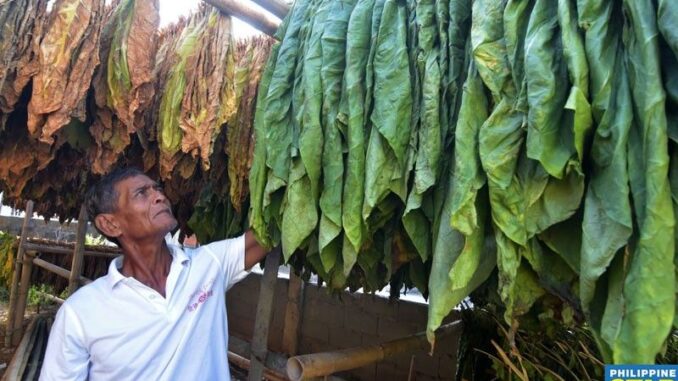
MANILA, Philippines — Local government units (LGUs) will receive P21 billion as their share of excise tax collections from tobacco and cigarettes.
In its latest memorandum, the Department of Budget and Management issued the guidelines on the release and utilization of LGU shares from the 2022 collections of excise tax on locally manufactured Virginia-type cigarettes, as well as Burley and native tobacco excise tax.
Based on the law, 15 percent of the collection from excise taxes on locally manufactured Virginia-type cigarettes but not exceeding P17 billion will be allocated to the beneficiary provinces pro-rata according to the volume of production.
Of the P17 billion, the biggest chunk at P10.76 billion will go to Ilocos Sur. Another P2.8 billion is allocated to Ilocos Norte, P1.92 billion to Abra and P1.52 billion to La Union.
For Burley and native tobacco producing provinces, five percent of excise taxes but not exceeding P4 billion will be earmarked for them.
The P4 billion will be divided based on production volume among 16 provinces with Isabela securing the largest share at P1.77 billion followed by Misamis Oriental with P562.31 million and Ilocos Sur with P560.25 billion.
Other provinces include Abra, Ifugao, Ilocos Norte, La Union, Pangasinan, Cagayan, Nueva Vizcaya, Tarlac, Zamboanga Sibugay, North Cotabato, Agusan del Norte, Agusan del Sur and Maguindanao.
According to the DBM, the funds should be used for cooperative projects that will enhance the quality of products, increase productivity, guarantee market supply and boost farmers’ income.
It can also be allocated for livelihood projects particularly the development of alternative farming systems and agro-industrial projects such as post-harvest and secondary processing like cigarette manufacturing and by-product utilization.
Infrastructure projects such as farm-to-market roads, bridges, schools, hospitals, rural health facilities and irrigation systems can likewise be funded, as well as programs that will provide financial assistance for tobacco farmers who were displaced or who ceased production.
Projects should be in line with the priorities set in the Agricultural and Fisheries Modernization Program and the roadmap for the local tobacco industry.


Be the first to comment